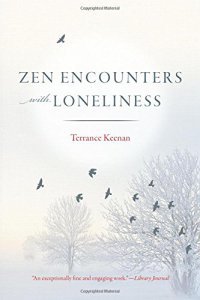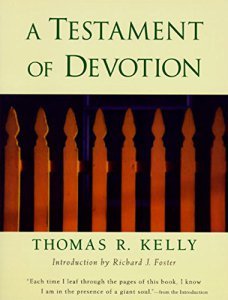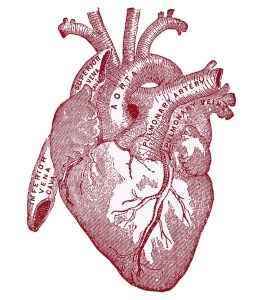Satya Robyn's Blog, page 2
June 25, 2018
My top five books on the divine
Yesterday my friend Sarah asked me a beautiful question – what are my top five books on the divine?
I thought I would struggle for ages, like choosing between favourite children, but when I reached inside for an answer, it came as easily as telling you what colour trousers I’m wearing (red of course). These are also the five books I’d take with me onto a desert island. What are yours?
 1. Zen Encounters with Loneliness by Terrance Keenan
1. Zen Encounters with Loneliness by Terrance Keenan
You might think I’m cheating with this one as Terry is a dear friend, but we only became friends after I sent him a fan letter, so I’m allowed!
Whenever I dip into this book I find a friend – one who has lived through difficult times, and who is able to show me the way towards beauty. His daily mantra is one I have adopted – ‘No blame, be kind, love everything’.
I’m glad I know Terry. Here’s what he said when I asked him what the best advice anyone gave him was:
“Show up. Then sit down and shut up. There is nothing wrong with joy.”
 2. Love Poems From God: Twelve Sacred Voices from the East and West ed. by Daniel Ladinsky
2. Love Poems From God: Twelve Sacred Voices from the East and West ed. by Daniel Ladinsky
Ladinsky must know God pretty well himself to have rendered translations of writings from these great spiritual sages with such playfulness, passion and beauty.
Rabia, St. Francis of Assisi, Rumi, Meister Eckhart, St. Thomas Aquinas, Hafiz, St. Catherine of Siena, Kabir, Mira, St. Teresa of Avila, St. John of the Cross and Tukaram are all here. How lucky are we?
These poems help connect me to my own relationship with the divine, and point the finger towards what is possible…
3.  The Big Book of Alcoholics Anonymous
The Big Book of Alcoholics Anonymous
Written in 1939, this book has helped and continues to help millions of alcoholics around the world to get and stay sober. The principles of the programme have since been adapted by many fellowships who use it to release themselves from compulsions around food, drugs, overwork, sex, gambling, relationships and more.
Reviews on Amazon are a mixture of five and one stars. Like all human groups, 12 Step groups can be healthy or unhealthy. A lot of people are suspicious of how evangelical AA ‘converts’ can be or find the spiritual focus of the programme difficult to stomach.
I love it, and I will keep returning to it as every reading brings deeper insight, comfort and freedom.
 4. Call of the Infinite by John Paraskevopoulos
4. Call of the Infinite by John Paraskevopoulos
More a book of poetry than a book about Buddhism, Paraskevopoulos puts into words the difficult-to-get-your-head-round wonderfulness of Pureland.
Like all the books I’ve shared here, his take on Buddhism or on life doesn’t completely align with mine. That doesn’t matter – I can take what I like and leave the rest.
What the writing in this book does for me is shed light on dimly understood concepts, and warm the part of me that calls to the infinite and hears a response.
Namo Amida Bu.
 5. A Testament of Devotion by Thomas R. Kelly
5. A Testament of Devotion by Thomas R. Kelly
Kelly was a Quaker, and in this little book he speaks of his relationship with The Light with such exquisite tenderness.
He helps me remember that it’s not my job to fix everything, just to do my allotted portion, which is completely manageable and which God will show me.
He helps me to make sense of how we can stay in touch with the divine without losing our footing on the earth.
He inspires me to devotion.
I’ve left out all sorts of writers who are hugely important to me. My Buddhist teacher Dharmavidya David Brazier, who’s writing is so much the ‘bread and butter’ of my life that I would carry it with me to a desert island in the liturgy I’ve memorised and the ‘book’ I’ve been gifted on how to live a noble and joyous life. Jean Vanier on community, May Sarton on a writing life, Annie Dillard for sheer brilliance, Anne Lamott for her encouragement in being human, Richard Rohr, Raymond Carver… now I DO feel like I’m leaving out my favourite children. So much gratitude.
But enough about my books. If you were going to a desert island, what five books would you take?
June 13, 2018
On tainted pleasures
 We practise together as a community at 8 a.m. on weekdays, and this morning I watched my colleague Dayamay get up from his meditation a few minutes after 8 to light the candles.
We practise together as a community at 8 a.m. on weekdays, and this morning I watched my colleague Dayamay get up from his meditation a few minutes after 8 to light the candles.
Dayamay is usually our bell-master, and it is the job of the bell-master to prepare the shrine room. This includes lighting the candles before people come in. I felt a flush of feeling – a mixture of disapproval (he forgot to do the candles!) and the smallest smidgen of pleasure.
I am familiar with this variety of pleasure. It is the part of me that enjoys it when other people get things wrong.
Sharing this with you elicits another feeling – shame. And this is exactly what I felt earlier too, just after the pleasure, when I realised that it was Wednesday, and that it was my turn to be bell-master and light the candles. Dayamay was covering for my ineptitude! In the blink of an eye my smugness shrivelled into embarrassment. I mouthed ‘I forgot!’ to Dayamay sheepishly, who gave me a shrug of ‘no problem!’
This sort of smug pleasure is always one pin-prick away from shame, because this is what the pleasure is covering over: a fear that we are not good enough. There is no need for us to feel superior if we have nothing to protect ourselves from. We just look at the other as an equal, whoever they are, and think, ‘yes, that’s how it is to be human.’
This morning I am going to welcome the part of me that felt this pleasure, and give it a hug. When I feel tainted pleasures of all varieties – the pleasure of punishing myself, the pleasure of sneaking the biggest slice of cake, the pleasures of compulsions – I will see them as signposts to something in me which is unhealed. When it’s too much to accept these parts myself, I’ll offer them up to the Buddha, who will accept them just as they are.
What tainted pleasures are you prone to feel? What would happen if you deflated them and saw what was underneath? How can you offer compassion to these parts of yourself?
*
Photo by Mikes Photos via Pexel with thanks.
June 11, 2018
I admitted I was powerless over the internet…
Step One of the Twelve Steps of Alcoholics Anonymous is: “We admitted we were powerless over alcohol, and that our lives had become unmanageable”. We all have different poisons. You might want to swap out the word alcohol for food, or other people, or shopping.
My favourite compulsions include sugar and overwork, but as they suggest in the fellowships, you focus first on the one that’s killing you the most quickly. I’m lucky in that my internet use doesn’t cause direct problems with my health, bank balance or the law, but it does affect me profoundly.
It distracts me from the people who are physically present, as I scroll on my phone rather than listening to my husband or stroking my cat. Every time I look online, I’m knocked from a spacious, grounded place to a scattered, hepped up state. The little hits of dopamine I get from Facebook notifications are reinforcing the wrong idea that I need to be affirmed in order to be valuable or loved. I wake up to email, and close my eyes at the end of the day with the glow of the screen still lingering.
In short, my current use of the internet is taking me further away from the life I want to live. I am not in control of it, and it is making my life unmanageable.
The first step is the most painful step, but in my experience it is also the one that brings the most hope. If I continue to insist to myself that I can control my internet use, that’s it’s ‘not that bad’, that it’s better to be natural than restrict myself, then I am stuck in the unmanageability. If I allow the truth of Step One to sink into my bones, then suddenly I step through into a wildflower field of opportunity – a place where I can hand my compulsion over, become abstinent, and be free.
Being free, for me, is checking email twice a day and Facebook once. It is the difference between choked, hungry days glued to the computer and my phone, and days with open swathes of time and the energy to pay attention to the subtle beauty around me.
Right now, I am going to begin my abstinence again. Maybe you’ll join me. What word do you want to swap out for alcohol? What does abstinence in your relationship with this word look like for you? What kind of freedom can you taste?
*
If you want to read more about the 12 Steps, go to the source, the Big Book of Alcoholics Anonymous, or try Russell Brand’s Recovery. I also write about the steps in my book What Helps: Sixty Slogans to Live By.
Photo via Pexels with gratitude.
June 5, 2018
On chasing bunnies
 Yesterday Poppet managed to find a rabbit-sized hole in the perimeter of our ‘bunny garden’ where they get their exercise. My dinner was just about ready when I glanced up to see her perusing our vegetable patch.
Yesterday Poppet managed to find a rabbit-sized hole in the perimeter of our ‘bunny garden’ where they get their exercise. My dinner was just about ready when I glanced up to see her perusing our vegetable patch.
I turned the oven down and went outside. As I approached her she headed towards the big slope down to the rest of our big garden, and I followed. I was so close to her. I felt the urge to chase after her, and I surrendered to it, pegging it down the slope as she darted ahead of me. Poppet’s only got one back leg, but that bunny can RUN.
At the bottom of the slope she disappeared under a very big, very dense bush.
As soon as I got my breath back I realised what a mistake I’d made. I already knew running at bunnies was a terrible strategy. Now Poppet was exhausted and startled, and unlikely to show herself for some time. I carefully prodded sticks into the heart of the bush… nothing. I called and circled, shaking her favourite bag of nuggets… nothing. How stupid of me to run at her! I was hungry, and grumpy. My frustration rose.
This urge to chase or force things is familiar to me. I unnecessarily push through tiredness to finish the last items on my to-do list, or I chase my own tail on too-busy days. I feel frustrated with other people when they don’t ‘do what they should do’, and I try to manipulate them when I’ve incorrectly put my safety or comfort in their hands.
We are tempted to force things when we resist the gap between our expectations and the reality of the world. As I slowly came to accept the new reality, that Poppet was hiding in a big bush, the frustration started to dissolve. I brought my food outside, sat on the grass, and settled down to wait. I looked at the sky and at the flowers, glowing in the evening light. I breathed.
A little while after I’d finished eating, Poppet poked her white nose out and started to amble her way back up towards her hutch. I followed at a respectable distance, chanting to keep us both calm, gently redirecting her when necessary. She happily re-joined her friends Smokey & Joe, and I left her nibbling on hay and maybe recounting her adventures.
When do you feel tempted to push or to chase? When do you resist reality? How could you settle in for the wait instead?
May 26, 2018
How can I make you happy?
 I am looking at the white question of the screen, as our cat Roshi bows at the scratching post and sharpens his claws, and as the wind runs its fingers through the leaves of the fading magnolia outside. I am wondering how I can make you happy.
I am looking at the white question of the screen, as our cat Roshi bows at the scratching post and sharpens his claws, and as the wind runs its fingers through the leaves of the fading magnolia outside. I am wondering how I can make you happy.
I have been thinking about offerings. That beautiful word. Every week Kris circles the temple garden and chooses flowers for the shrine; pyramids of frilly scented lilac, branching cow parsley, frothing ferns, buttercups like solid drops of blackbird-song. At the start of every service we make offerings — lighting a stick of Japanese incense and letting the smoke loop out, carefully pouring water into three pale bowls and lifting them up to the Buddha.
I have been wondering how it might be to live my whole life as an offering — to the Universe, to those I love, to the Buddha. If I did that, what would I do with my days? What would I write? What do you want from my writing? How can I make you happy?
‘How can I make you happy?’ is a question that triggers my codependency, my urge to people-please. How can I manipulate you into liking me? What will be popular? What will collude with your favourite stories about yourself? What will give you a sugar-kick?
I don’t want to put flowers on the Buddha’s shrine to curry favour. He/she loves me anyway. I want to offer flowers because it makes me happy, and to say thank you, as I have already received so much.
When I was ordained as a Buddhist priest, I was given my new name by someone who loves me. She called me Satyavani — Satya means ‘truth’, and ‘vani’ means eloquent communication. It both describes what I do, and inspires me to do it better.
Here’s a better question: ‘What is the truth, and how can I put it into words that will sing?’
I was just interrupted by the trill of my mobile phone, alerting me that my brother has sent a fifty second video of him and his family on holiday. A big blue pool dappled with light, a giant inflatable flamingo, my little niece with her bright pink armbands. Shouting. Laughter.
I can offer you this — the instinct my brother had to share a little slice of his life with me. I can show you my pleasingly heavy glass dome with a sparkly jellyfish inside, and how it dances with the light. I can tell you about how tired I felt this afternoon after a week of too-many-people, and that after my nap I felt like I was pushing up from deep deep underwater. I haven’t quite breached the surface.
I want to tell you the truth. I want to offer it to you with open hands. I want to place precious things on this shrine of white pages. I hope that sometimes my words might serve the same purpose that they offer me — turning me towards love. Always towards love.
Deep bow.
May 24, 2018
Why do we do stuff?
This is a question that has been marinading in me for weeks, months, years. It goes alongside questions such as, what should I do with the limited time I have? What is the most skilful way of meeting my goals? What ARE my goals?
Of course, I know that in reality there are a whole jumble of motivations getting me up in the morning and driving me forwards. Most of these are self-seeking in some way. Ooh, I can have those juicy raspberries with my breakfast. Ooh, I can write a blog so people can appreciate my brilliance. Ooh, if I’m nice to that person then I can prove to myself and to others that I am a very kind person indeed.
These motivations aren’t necessarily bad, especially if they result in me doing good stuff. But they are all ultimately doomed to fail as Trying To Make Me Happy. The taste of raspberries is luscious, of course. And it soon passes. People sometimes do appreciate my writing, and then they move on before I’ve had ‘enough’ affirmation. I eventually see that sometimes I am a very kind person and often I am not.
I’m currently in conversation with Brother Lawrence, who lived in the 17th Century. He told me: “Our sanctification did not depend upon changing our works. Instead, it depended on doing that for God’s sake which we commonly do for our own”. He also said, with particular reference to my affirmation-seeking, that the most excellent method he’d found for ‘going to God’ was that of “doing our common business without any view of pleasing men but for the love of God.”
A translation for those who are allergic to the ‘G’ word – if we can do our ordinary everyday work with love, as an offering for the Universe, then everything else will look after itself.
How would it be to live my life without worrying about what individual people thought about it? Without needing to manipulate them into giving me something or to behave in certain ways? How would it be to see work not as ‘something I have to do’ and instead an opportunity to engage with the world and make offerings?
I ponder these questions with a realistic view of what is possible, both knowing my track record!, and also with an open heart and mind, knowing that anything is possible. In asking them, I catch glimpses of freedom, peace, revolution, relief, excitement, joy…
What are good questions for you on the theme of why you do stuff? What might unlock possibilities for you?
May 17, 2018
How can we help?
 There is no love which does not become help. ~ Paul Tillich
There is no love which does not become help. ~ Paul Tillich
Sometimes it is exquisitely painful to love. We love those who do not love us back. We love those who are cutting into themselves, and they will not stop, and we cannot stop them bleeding. We love those who are gone from this earth.
Sometimes it is bountifully joyful to love. We love those who purr, who beam smiles back at us, or who we see growing and blossoming. We love all their intricate quirky details. We love to see how they love others.
Sometimes we tangle up our clean, freely offered love with our own desperate needs – to be seen, to be appreciated, to get something IN RETURN. This is not love. We are yearning for love, and we can find ways of answering this yearning, asking for what we need, more directly.
Sometimes we lose faith in love, as we see our efforts falling on deaf ears, on barren ground. We plant seeds, we water them every day, and nothing green breaches the skin of the earth.
We don’t see the roots. We don’t see that the ground may have been neglected for decades, for generations, and that we are bringing life to it, slowly, slowly.
How can we help? We must keep loving.
*
My offer of love to you today is my new book What Helps, free on kindle today. Amazon UK / Amazon US etc. Deep bow.
May 12, 2018
Raspberry leaves and sweet silence
 For this morning’s Buddhist service, rather than sitting in the shrine room we went outside.
For this morning’s Buddhist service, rather than sitting in the shrine room we went outside.
We spent forty minutes snaking single file around the temple garden, slowly placing one foot in front of the other. The gravel was sharp and woke up my bare soles, and then the dew cooled them. A robin accompanied us with her confident song. We paused to bow to the big Buddha in the alcove, we bent over the pond to greet the tadpoles, and as we passed the temple bunnies we offered them raspberry leaves through the holes in their enclosure.
On returning to the shrine room, we sat quietly on our cushions for a while. The silent was sweet. It was soaked in colour and scents and shapes and sounds and it was pleasing like the weight of a baby or the fur on a cat’s belly.
When I can walk through my days like this, everything lights up. After service we had a volunteer day, and I was still full of light as I scrubbed a dirty toilet, ran up and down the stairs and tried to keep track of the seven different things I was doing at once. I was full of light as feelings floated through – disappointment, gratitude, amusement, frustration, joy. I’m full of light right now as Roshi cat tries to curl up small enough to fit in front of my laptop, purring like an engine.
Life isn’t always easy. Sometimes we have sharp gravel under our bare feet, and sometimes cool soft grass. Don’t forget to slow down and listen to the robin singing. Don’t forget to open yourself up and let the Buddha fill you with light.
*
Photo by FOX from Pexels with gratitude
May 8, 2018
Flaring tempers at a well blessing
 Yesterday Rev Khemashalini & I performed a Buddhist well blessing at Evandine. My favourite bit is where I use a leafy branch to sprinkle everyone with cool blessed water.
Yesterday Rev Khemashalini & I performed a Buddhist well blessing at Evandine. My favourite bit is where I use a leafy branch to sprinkle everyone with cool blessed water. The joys of the blessing were punctuated by two ill-tempered incidents. The first was someone who wanted to collect water, and said with obvious annoyance that ‘we could wait’ until they were finished. The second was a couple of cars who met head on in the tiny lane, both of them stuck and refusing to budge and let the other pass.
There were mitigating circumstances in both incidents – old resentments that flared up, and that whited out any good will or patience those involved might usually have. This happens to us all – we come to a time when we have HAD ENOUGH and we take out our frustration on whoever happens to be present.
This is how it is to be human. This is why we need water blessings, communities, empathy, self-reflection, sunshine and lots of patience. When we’re not the one flaring up or digging in our heels, we can remember how uncomfortable it is to be in this position. We can soften our hearts towards the other, and approach them from a place of brother/sisterhood.
I didn’t manage that yesterday, and I judged away, feeling deliciously superior, as I watched a member of the well dressing team intervene with humility and great skill.
Oh, foolish beings that we are! I’ll keep sprinkling that cool blessed water on myself, and if you’d like some I’ll send some your way too. Deep bow.
April 30, 2018
In praise of cheerleading
 This weekend my nieces took part in the children’s mini-marathon in Greenwich Park.
This weekend my nieces took part in the children’s mini-marathon in Greenwich Park.
After a mass warm up with stretches and jumping jacks, we saw them off at the starting line. Luma (5 and a mini-marathon first timer) ran with her mum, and Ramona (7 and a veteran) with my brother. The route looped and snaked around which made it possible for us to cross the park and stand by the side of the track several times, scanning the oncoming stream of people until our little runners came into view.
Whenever we spotted them we started yelling:
Go Ramona! Go Ramona!
Luma! Luma! Luma! Luma!
As they jogged closer and suddenly clocked us all shouting for them, their faces lit up.
It isn’t always this easy for us to cheer each other on. We place conditions on each other, rather than remembering that we are all running as fast as we are able to. We forget that we still need cheerleaders once we’re grown-ups. We only want to dole out our precious cheers to those who’ve already cheered us. We are too tangled up in our own needs. We think cheerleading will make people complacent or lazy or spoilt.
I wish you’d seen the light shining from my nieces’ faces. You would want to cheer them on too, and all the other children who ran 2.62 miles around the park, and all the parents. They all worked so hard, getting stitches and feeling jealous of the boys who overtook them and getting thirsty and feeling afraid that they’d never make it to the finish line.
Who can you cheer on today? Send a text or email, write a letter, or pop round and give them a non-virtual hug. Maybe they’ve got achy legs or an achy heart. Maybe they’ve been pushing through the pain barrier for a long time. Tell them what you appreciate about them. Tell them that you see them. Tell them you don’t need them to do anything to earn your cheering.
We all work really hard, running our own snaking, looping races. Can you see me at the side of your track? Have you heard me yelling yet? Keep going! Keep going! You’re doing your best! You are loved! You are loved!





